Last Updated on December 8, 2022
The main functions of an alternator are to generate electricity for the electrical components of the vehicle and to charge its battery. The alternator produces this electrical energy by converting mechanical energy.
If you were to try and start your vehicle without an alternator, the battery alone would not be able to produce enough power to get the engine running.
Even if you had a new car battery and were lucky enough to turn the engine over, it would probably run for about 10 minutes before the power cuts out. The alternator is necessary to keep the battery recharged and to alternate the electrical current throughout the many components of your vehicle to keep them powered.
Read Also: How to Fix an Overcharging Alternator
Causes of Alternator Not Charging the Battery
A lot of people get confused when they begin to have electrical problems with their vehicle. It’s easy to misdiagnose these problems as being a bad battery instead of a bad alternator.
To understand the difference, you must first learn about what causes an alternator to stop charging. Then, you can inspect the vehicle and determine if the problem is your alternator.
Below are the top 5 causes of an alternator not charging:
#1 – Computer Error
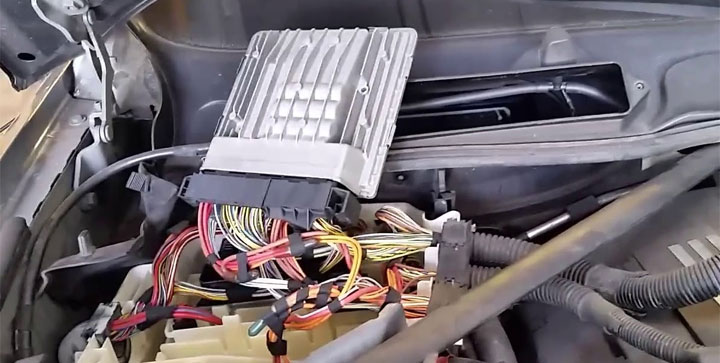
Most people are driving cars made within the last 20 years. These newer cars all have a central computer system or engine control unit (ECU) which manages and operates the vehicle’s components and parts.
This computer manages the alternator as well. Therefore, all it would take is a computer error and the result would be a malfunctioning alternator, preventing it from charging.
#2 – Broken Belt or Pulley
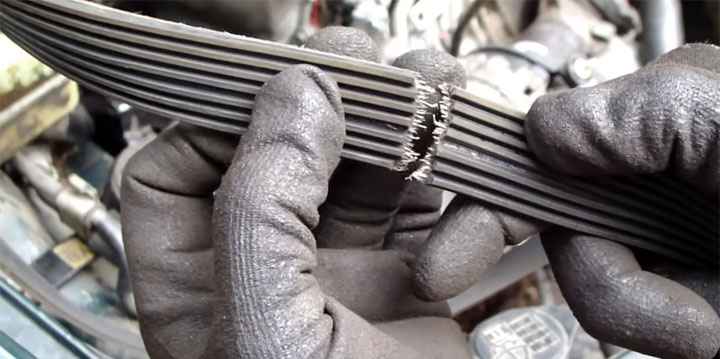
The belt and pulley produce the mechanical power which gets converted into electrical energy by the alternator. Your serpentine belt can easily break if it gets stretched out too much, causing it to snap apart.
The pulley can also get damaged after a while. In either case, the alternator will no longer be able to produce a charge for the battery.
#3 – Blown Fuse
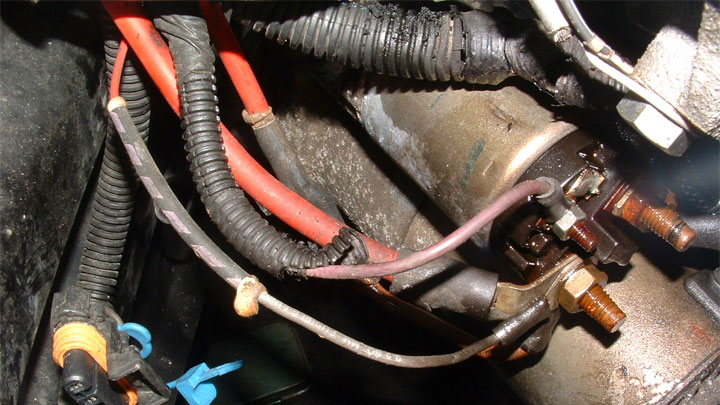
There are certain models of car which have alternators dependent on a particular fuse or fusible link to operate. However, these fuses can blow due to a power surge or simply from old age. Once that happens, the alternator will no longer charge the battery.
If you don’t know whether your vehicle has an alternator fuse or fusible link, you’ll have to check your owner’s manual to see which one it has. Checking the fuse is well worth investigating in the event your car battery is not charging properly.
#4 – Wiring Issues
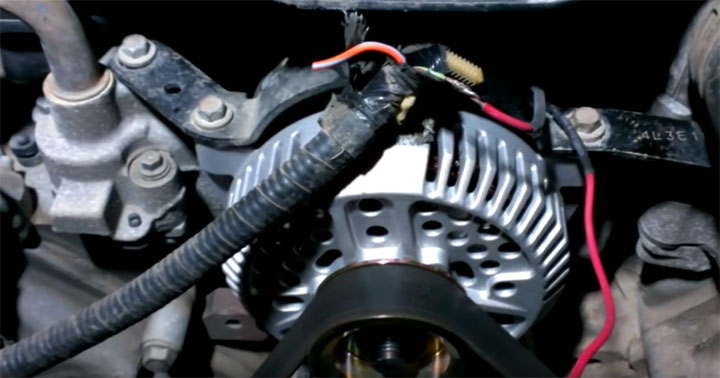
There are numerous wiring components in a vehicle that help produce power for the alternator. All it would take is for one wire to be disconnected or cut for power to stop being generated. As a result, the alternator won’t be able to charge the battery until the wire is repaired or replaced.
#5 – Bad Alternator or Battery
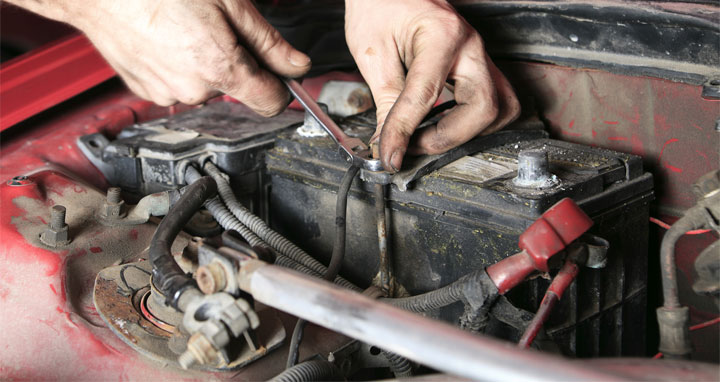
Alternators and batteries do not last forever, and each have their own lifespans. A car battery will last from 2 to 5 years, depending on how often you drive and the climate where you live. Batteries generally last longer in colder environments and shorter in hotter environments.
Alternators will on average last about 7 years or every 80,000 miles but there are always exceptions.
See Also: Code P0562 (low voltage)
How to Fix
The most common reason for an alternator failing to charge a battery is one of them going bad. You can easily test the voltage by connecting a voltmeter to your battery while the engine is off. The voltage reading should be between 12 and 13 volts. You can automatically assume there’s a battery problem when the reading is lower.
In the event your battery’s good, start the vehicle and get the engine up to 2,000 RPM. This will put a lot more demand on the alternator. A decreasing voltage reading on your voltmeter indicates you have an alternator problem.

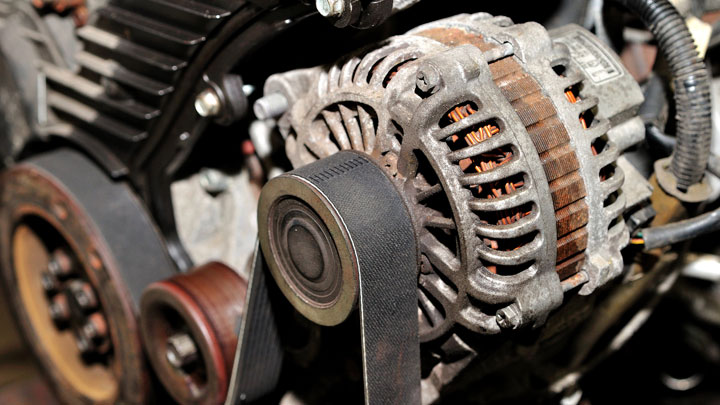

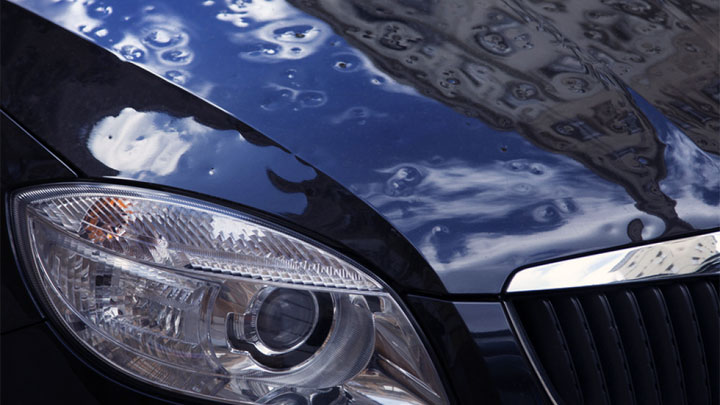
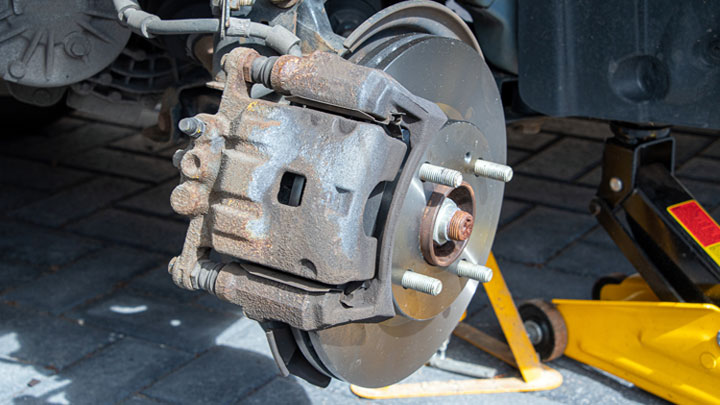
Ok I just got a new starter and charged my battery up but my car still want start please tell me why
Make sure you don’t have any corrosion on the battery terminals. I’ve had a brand new battery hooked up on a car with corroded terminals and it wouldn’t even crank.
I have a 99 Subaru Forester and autozone told me I have a bad alternator. I put the new one in and hooked up battery. It dings but I’ve noticed some new lights in the dash, a spark came out of the alternator with a pop. With new battery it seemed to be working, but weird my windshield wipers won’t shut off now and when I go to turn it over it makes that sound like when you try to start a car that’s Lready running. I had my wife start it while I was under the hood and you can hear that the sound is indeed the starter but it’s not engaging the engine.. please anyone know what is wrong?
It sounds like something isn’t grounded or hooked up properly. Here’s how I’d start.
Double check to make sure you’ve installed the alternator correctly. Next, check to see if any fuses have blown. It sounds like there is a short based on the way the wipers and starter are running.
If nothing is obviously out of place, grab a wiring diagram, a multimeter, and a test light and work backwards from the windshield wipers. You know there’s something wrong with that circuit, so seeing which systems it connects to might give you a clue as to what is shorting it out.
If this is outside your comfort zone, take it to a shop and tell them the initial problem. Then, tell them exactly what you did (step by step) with your alternator install if you can. Good luck.
my 2017 ford focus 1.0 eco boost after 22,000 kilometers (2 years & 9 months with) the alternator stop working and i am very disappointed
2002 mercury sable 3.0 DOHC. Battery was not charging. Checked the alternator and it’s good. I found the hot wire from alternator to the outer fuse box under hood connection loose. One side of the fuse box say’s alternator, the other side battery. There is a jumper flat plate between the 2. If the connection was loose on the alternator side would this cause the battery not to charge because the jumper flat plate to the battery is loose? I did notice what looked like a flash, white splash like when a wall outlet blows on the plastic. So If the loose connection is the cause then what caused the flash. Battery tested fine with multimeter but with ac running, radio, lights the voltage dropped to 11.8 , 11.9. it should have been at 14 charging the battery. Without the load the battery is 12.4 – 12.6,
The socket where the bolt is located is somewhat melted so I can’t tighten the cable, the bolt keeps turning. So I am jb welding the bold in the socket. Hopefully that keeps it from turning and then I will put the jumper plate on and tighten the cable and test to see if the battery is charging. I am doing this to avoid putting in a new outer fuse box if I can. Not sure this will work.
Feed back and suggestions are welcomed.
Thank you
Yes, a loose connection there is probably causing low voltage and high impedance. When there is less metal contact, there is more resistance (or impedance) in the circuit. This also creates more heat.
It’s your car. If JB Weld works and you’re happy with it, that’s your call, as long as it’s not a danger to anyone else. If you ever sell the vehicle, you should disclose this type of repair to the buyer.
If it were me, I would either try to repair the threads with a Helicoil or replace the fuse box. A good Helicoil repair should hold the factory torque spec without any problems, and it also lets you use the OEM bolt. Helicoils are pretty straightforward to install if you’ve never done it before.
I used Toyota corolla 2007 model, l cannot pack the car for a day unless l remove the positive line on the terminal just to keep power in the battery, the mechanics checked on the alternator and the battery but l finally replaced with a new battery, yet the problem persist, l want help. Thanks
It sounds like you may have a parasitic draw somewhere, possibly from the stereo or another electronic component.
I have a 1991 Nissan Sentra XE 2 door . I bought this car last year and ever since i bought it I fix 1 thing and something else f***s up. ONE WHOLE YEAR. Anyways, My car would turn off in the mornings if i didnt rev it up a good 3 times. Now my brake and my battery light on my dashboard turn on when my alternator is going at high rpms but when i slow down they turn back again… any ideas on what this could be ?
The previous owner treated it like crap and the bolts werent even from under the engine ..
It could be an issue with the alternator. I would have the alternator tested at an auto parts store. While you’re in there, check the serpentine belt tension. If the belt tension is too lose, it might be slipping at high RPM and causing the lights to come on. If the previous owner mistreated it, you could have multiple issues going on. Good luck, hope it works out for you.
I have a 2010 Dodge Avenger sxt. The battery light came on, and two days after that, the car died on our way home from the dentist. So we jump started it twice in order to get the car home.
I replaced the alternator, and put new battery in.
Car still won’t hold charge? Every time I jump start the car, it will only run for a few sec and dies eventually. Battery light still on. Idk what to do anymore!! Help?
Check all major grounds associated with the charging system, along with the battery terminals. Make sure all are clean, tight, and free of corrosion.
I Have Jetta 4 2l, At first my battery was not charging I took it to Auto electrical they changed the Regulator and also put new Brushes on the alternator and it was fine for some few weeks. Now it has started again it doesn’t charge to battery to 12 to 13 Voltages but it looks like is only charging the car when moving.. What can be the cause?
Please help
Assuming the battery and alternator tested good, I would check all major grounds in the charging system. Make sure they are clean, tight, and free of corrosion.
I noticed my lights flickering and a few days later my car (06 GX 470 Lexus) wouldn’t start without jumping it off. I asked a worker at O’Reilly to check my battery and my alternator. He check the batter and it said it was a dead battery but it was reading at 12volt. (Not sure what this meant) So I bought a battery for $150. Go to work the next morning morning and at the end of the day car won’t start. So I take my car to auto shop and they put an alternator in but call me to tell me that something was wrong and it still wasn’t charging the battery so they put another one in and the same issue 😩. Now he’s saying that there is something going on where the car isn’t charging the alternator but I have already spent $550. I am so frustrated. A couple months ago I got a P2103 diagnosis reading… wonder if this has anything to do with my issue????
I don’t think the P2103 code has to do with the battery that isn’t charging. Sounds like you have a poor connection somewhere in the charging system. It could be a dirty or corroded connector to the alternator or battery, or it may be a bad ground. The shop should probably do some electrical diagnostics to see where the issue is.
The battery should read about 14 V while the car is running. If you read 14 V, drive the car around the block, park, and take another reading while the car is running. Does the voltage drop at all?
My car is 2011 camry all stock at 367k miles right now. Based upon the article, the alternator is way due for my car and the battery is at 3 years old. I tested the battery with engine not running at 13. With engine on, I get 13.5 . With my case, I will change the 2 most obvious first and that is either the battery or alternator. I’m doing the alternator this weekend. Oh and flashing battery light was on and off, flickering then turned off for 1 month and now acting up again but the light is now off. I hope changing my alternator (thinking it is due of old age) will give me a 14 volt reading while engine is running. I just hoping it is not no cable wiring issue.
2004 Kia Optima. Alternator will not show more than 11 volts at the rear post. We have put in 4 different alts. Same issue. Will not charge new battery. Replaced alt belt stock with replacement but it seems small when installed. When installing belt it has to be squeezed on and then tensioned but seems to have a lot of tension arc still available on the armature device. Would a longer belt increase voltage? I am a home mechanic and have built many engines but this has me completely stumped.
It’s obvious that an alternator has internal parts strategically designed and assembled to work together in order to produce energy commonly known as electricity. The most practical way for this to happen is by spinning the pulley that is attached to the conjunction of internal parts designed to utilize friction between a copper coil windings add metal brushes. Anyway, if these parts ( bearings, starter, coil windings brushes etc.) wear and become Off canter or off center, they won’t produce enough electricity as it once did. The accessory belt might end up up stretched until it no longer makes a constant contact with every pulley. When this happens, it’s very likely for damage caused by the belt to continue until these accessories no longer function correctly. Theoretically, if the belt is tight enough to create too much force on the pulleys. This excessive force ( pressure ) can cause the bearings to become out of round. This pattern of spinning motion starts a chain reaction leading to damage that renders the alternator useless. I’m certain that the alternator relies on each revelation of the pulley to be consistent but the speed for which it turns may not matter.
Did you fix it?
How?
Hi Sir
Your advice is very helpful especially for people like myself with limited knowledge I thank you it is much appreciated.
You left out the stupidest reason ever: The battery light on the dash burns out. I dunno if this applies to all cars but It happened to me and I learned of other instances. I knew it was burned out but I didnt think anything so moronic could be possible: The thing that is supposed to tell you your alternator isn’t working causing it not to work.
This really happened?